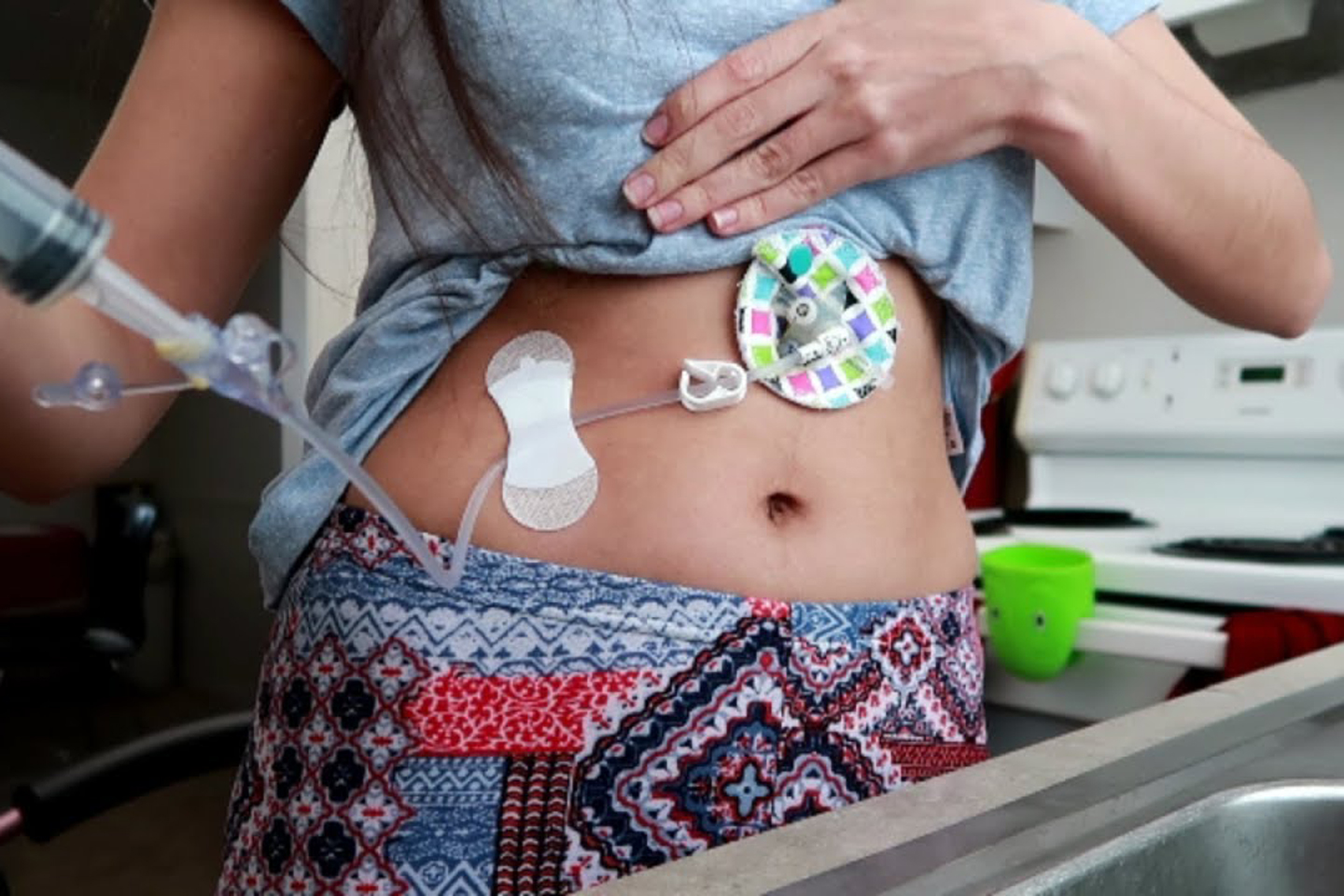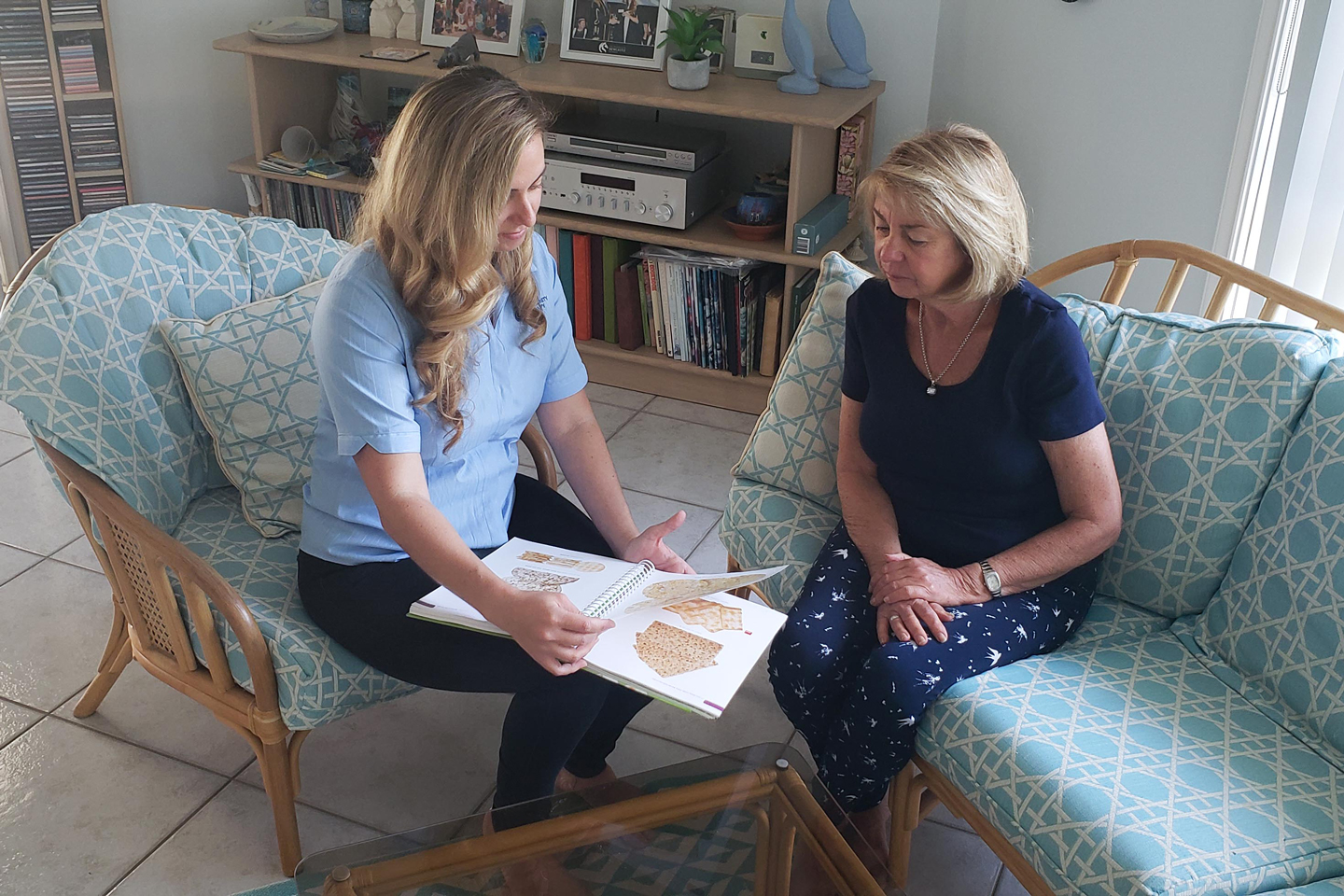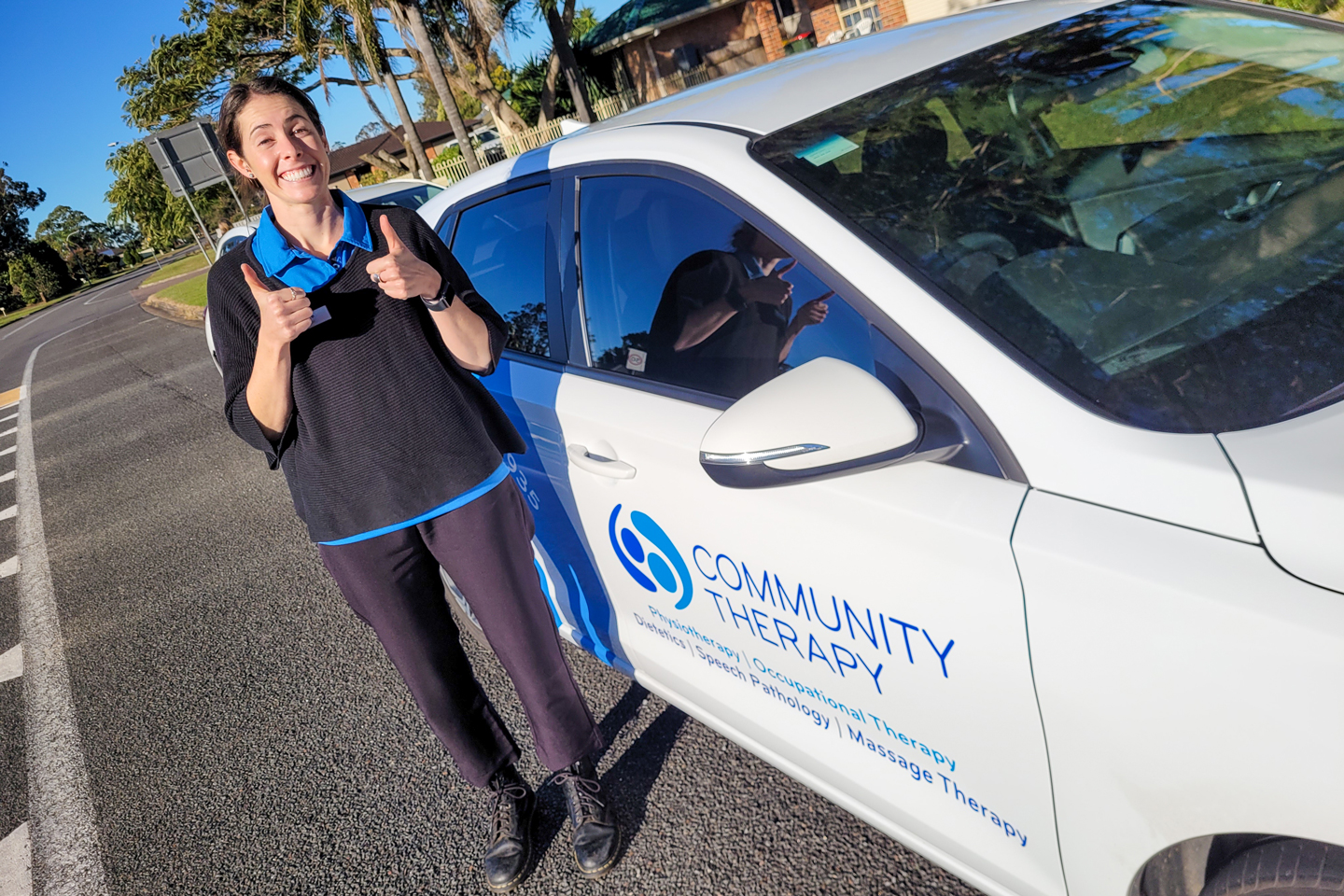What is Tube Feeding?
Tube feeding, also known as Enteral nutrition, is a type of oral nutrition support that may be indicated when individuals are unable to meet sufficient energy and nutrient needs orally (by mouth).
Specifically, enteral feeding allows nutrition to be administered through a tube into the stomach or small intestine.
Who May Require Tube Feeding?
Conditions which may require enteral feeding include postoperative and cystic fibrosis patients, neurological and psychiatric conditions, swallowing disorders and severe malnutrition.
There are different types of enteral feeds, however PEG [percutaneous endoscopic gastrostomy] and PEJ [percutaneous endoscopic jejunostomy] feeds are recommended for long-term use and are often what we see within the community setting.

What Types of Food are Compatible?
Tube feeding requires specially formulated nutrition supplements. It is not recommended to put anything else other than the prescribed feed, water flushes and/or medications through the tube. Doing so could lead to tube blockages, and/or infections due to contamination risk.
An Accredited Practising Dietitian (APD) is able to assist in choosing an appropriate formula suited to your nutritional needs and disease state. Our Dietitians at Community Therapy develop an individualised feeding regime appropriate to your weight goals, height and age.
Regimes will also vary according to your condition and whether you require partial or complete enteral nutrition.

What Equipment is Involved?
Determining the appropriate delivery of feeds (manual vs automatic) requires thorough assessment related to one’s physical, emotional, financial and environmental status. Equipment required will vary according to the delivery of the feed.
Formulas are either administered through a bolus feed (manual, using a syringe) or via a feeding pump (automatic, continuous or intermittent). A bolus feed will require regular replacement of syringes whilst a feeding pump will require an IV pole and regular replacement of a port connection.
Reliable sources to order equipment include but are not limited to Bright Sky and Independence Australia, however it is strongly recommended to liaise with your Accredited Practising Dietitian (APD) for assistance with choosing a mode of feeding and formula appropriate to your disease state and lifestyle.

Training Family & Carers
Education and advice regarding administration of feeds is easily accessible via your healthcare nurse trained in enteral nutrition, in combination with an APD.
Representatives from specific providers may also conduct home-visits and follow-up phone calls to assist with the ease of transition and use of bolus feeds or feeding pumps.
A guide to tube feeding and further information such as troubleshooting issues is available via the following link: https://aus.tubefed.com/

Services from Community Therapy
Community Therapy will support you through education and advice specific to your disease state, lifestyle and individualised needs.
We work with you to formulate goals which target maintaining or improving your nutritional status and managing nutrition-related symptoms, including bowel management to support one’s quality of life.
This involves thorough dietary assessment, including calculations for energy, protein, nutrient and fluid requirements to allow for optimal function.

Long Term Dietetic Support
Transitioning to enteral nutrition can often be challenging for individuals. It is essential for both patients’ and their carers to be supported and aware of support services and healthcare professionals including nursing staff, doctors and APD who are available to assist as concerns and questions arise.
Specifically, our Dietitians at Community Therapy will regularly monitor clinical signs and symptoms including refeeding risk, weights and bowel motions. We aim to support one’s quality of life through the prevention of malnutrition and weight loss which also align with your individualised goals.

Ready to Work with Our Dietitians?
We’d love to receive your enquiry, please note that:
- Our Dietitians are mobile across Newcastle, Port Stephens, the Hunter and the Central Coast, NSW
- We are fully university-qualified
- We visit your home
- We adopt a patient-directed approach to healthcare
If you have any questions, please use our contact page to get in touch.


